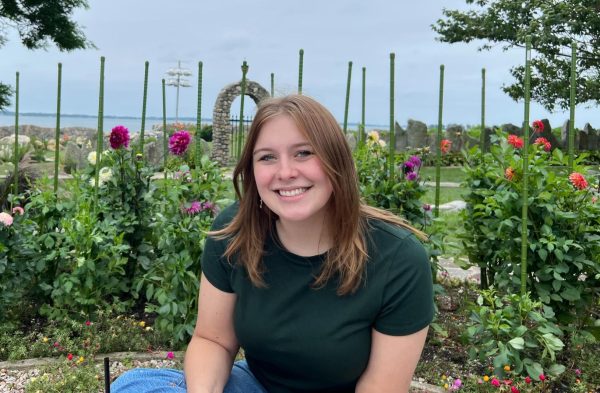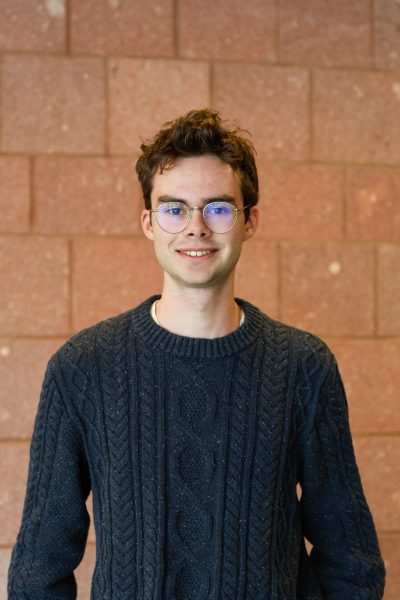Community Support for Immigrants (CoSI) seeks to bridge differences among local community members through a shared human need –– food.
A civic organization based in the First Presbyterian Church of Grinnell, CoSI strives to create a welcoming environment for immigrants and provide them with information, resources and assistance.
Community member David Isch founded CoSI in 2018 after a U.S. Immigration and Customs Enforcement raid in Mount Pleasant, Iowa that detained 32 workers.
According to John Ashby, co-chair of the CoSI steering committee, Isch and other founding members “wanted to organize the community so that when it [a raid] happens, we’re ready to go.”
Ashby explained that most of CoSI’s money goes to support Grinnell and surrounding areas in need of humanitarian aid. For example, last year, CoSI raised $25,000 to assist the unprecedented number of Afghan refugees who had to relocate to Iowa.
Ashby said that CoSI has also supported individuals who have faced bankruptcy, unexpected medical bills or any other difficulties settling in a new community.
CoSI relies solely on volunteers, so “anybody can be a member,” said Ashby. He also emphasized CoSI’s mission to remain non-confrontational in politics.
“There’s value to this kind of a model that enables more people to be involved in helping, and if it starts to get political, then it just starts falling apart.”
At the start of the pandemic, Vanessa Preast, associate director of the Center for Teaching, Learning and Assessment at the College and member of the CoSI steering committee, began exploring ways to bridge community divides.
In 2019, she started making cloth masks to distribute to those who needed them, a venture that CoSI soon supported. Together, Ashby said CoSI distributed around 4,000 masks.
“I started talking with other collaborators, and we were still seeing unrest in the community and political divisions,” said Preast. “I was kind of feeling the success of the mask effort and I just felt like there’s got to be something more we can do.”
In considering the best ways to connect, Preast said, “it came down to, well, we all eat. That’s something we all have in common.”
Preast suggested creating a cookbook of different recipes and stories, and she is now leading a team to interview community members to solicit recipes and food stories.
“Everybody needs, and most everybody gets excited about some kind of food,” Ashby agreed.
To better understand how CoSI volunteers should structure their interviews, Preast said she conducted around nine herself. She said that during one interview, a woman cooked empanadas with her.
“It’s less about the recipe than it is about the story,” Preast said. “I don’t want anyone to be invisible. Everyone matters.”
Ashby agreed that the stories behind the recipe are the most meaningful part of the work. He encouraged those considering a submission to “think about a recipe that has meaning to you, especially one that has history behind it.”
Ashby’s wife is from the Azores, a small Portuguese archipelago made up of nine volcanic islands.
Ashby said that he immediately knew he wanted to submit his wife’s family’s bean soup recipe, a humble dish that sometimes includes dandelion greens. “It’s really a how-to-make-a-meal-when-you-have-nothing type of soup,” said Ashby.
Both Ashby and Preast mentioned that one interviewee discussed how their family ate mustard sandwiches when low on funds. “I think that’ll have to make it into the final version,” said Ashby.
Preast also said that no recipe or story will make it into the final product without the review of the contributor. “I want to invite people to take ownership in it,” she said.
Ashby added, “We’re not going to put in anything that the person hasn’t read and said it’s okay.”
Ashby and Preast said that anyone interested in volunteering for the project — either interviewing others or contributing a recipe — should reach out to john.kenneth.ashby@gmail.com, preastva@grinnell.edu or cosicentraliowa@gmail.com.




















































